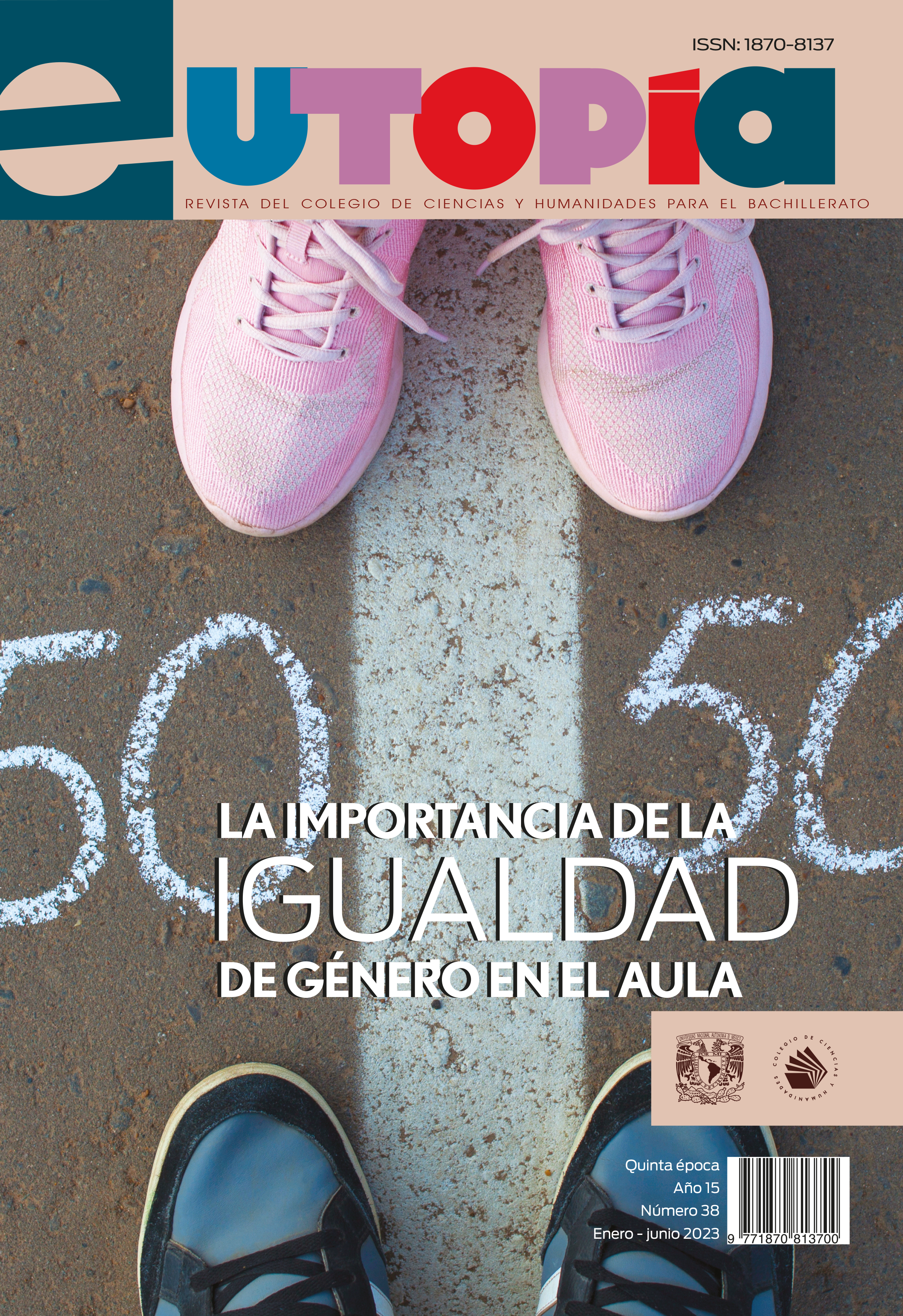Metodología situada: una fortaleza de la tutoría inclusiva comprometida con la coeducación
Contenido principal del artículo
Resumen
El siguiente artículo forma parte de la colaboración entre la Secretaría de Asuntos Estudiantiles y el Programa Institucional de Tutoría del plantel Vallejo del Colegio de Ciencias y Humanidades, esto a partir de las necesidades detectadas en la propuesta educativa comunidad de aprendizaje Teams del CCH/UNAM, en busca de crear mecanismos internos para que la relación entre maestros, alumnos, familia y sociedad sea cada vez más colaborativa; para ello, se involucran habilidades socioemotivas fortaleciendo, en este contexto, el proceso de la acción tutorial en Entornos Virtuales de Enseñanza y de Aprendizaje (evea), como una tarea primordial de los tutores, y una actuación diferente al modelo psicopedagógico o al de educación
especial. Su contraste radica en que no se basa en la construcción del otro, sino que propone un marco de construcción destinado a garantizar la forma situada, como un motor de cambio que contribuye a crear grupos integrados socialmente fuertes, comprometidos con el conocimiento y la igualdad.
Este texto finca un recorrido de las sociedades del conocimiento en los entornos que construyen organizaciones que aprenden
mediante la fundación de comunidades de aprendizaje que requieren redes de colaboración, son creadoras de ciudadanía y, por ende, de estudiantes y/o ciudadanos resilientes y asertivos donde la tutoría juega un papel importante para generar coeducación, desde la mirada de la empatía y la conciencia de los grupos vulnerables como un proceso de formación para cada individuo; de tal manera que, paulatinamente o en gran medida, se hará mediante un programa de acción formativa que sensibilice los dos criterios de inclusión: el de aceptabilidad y pertenencia.
Descargas
Detalles del artículo
Citas en Dimensions Service

Esta obra está bajo una licencia internacional Creative Commons Atribución-NoComercial-CompartirIgual 4.0.

Eutopía by Dirección General de la Escuela Nacional Colegio de Ciencias y Humanidades is licensed under a Creative Commons Reconocimiento-NoComercial-SinObraDerivada 4.0 Internacional License.
Creado a partir de la obra en http://www.revistas.unam.mx/index.php/eutopia/issue/view/4370/showToc.
